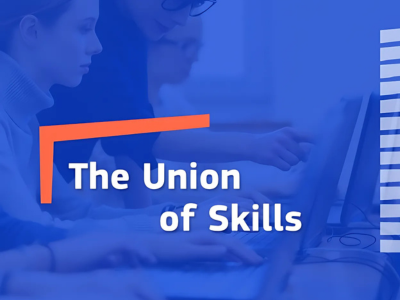European Commission presents strategy for the Union of Skills: what does it means for higher education?
12 March 2025 | From UNICA

On 5 March 2025, the European Commission unveiled its strategy for the development of the Union of Skills, an initiative that aims to boost Europe’s competitiveness through enhanced investment in human capital by fostering quality, inclusive, and adaptable education and training systems. The “Union of Skills Communication” starts by highlighting significant issues hindering Europe’s competitiveness, including skills shortages, slow adaptation of education and training systems to technological and green transition needs, fragmented governance of skills policies, scarcity of skilled graduates, difficulties in attracting global talent, declining basic and digital skills among youth, low adult participation in upskilling, and an unprepared workforce to take forward the decarbonisation of the economy.
To tackle these issues, the EC is introducing a plan based on four key strands to improve high quality education, training and lifelong learning:
- Build skills for quality lives and jobs through education, with an inclusive lifelong learning approach;
- Upskilling and reskilling for the digital and green transition;
- Circulating skills across the EU for competitiveness;
- Attracting, developing and retaining talent for Europe’s future.
The Union of Skills advocates for a comprehensive strategy that integrates education, training, and employment policies to drive innovation, decarbonization, resilience, democracy, and social equity. Tackling this challenge demands a shared commitment and a coordinated approach, engaging Member States, social partners, businesses, universities, and schools to balance both skills supply and demand. The document stresses the need for full commitment, an effective implementation framework, and governance rooted in a cohesive competitiveness strategy to guide investments and reforms at both the EU and national levels.
The Union of Skills Communication is accompanied by an Action Plan on Basic Skills and a STEM Education Strategic Plan to improve skills in science, technology, engineering, and maths, promote STEM careers, attract more girls and women, and boost preparedness in the face of digital and clean-tech transitions.
What does it mean for higher education?
The Union of Skills highlights the critical role of higher education in strengthening Europe’s competitiveness. Institutions working in the sector will be expected to:
1- Expand access to higher education & lifelong learning
- Increase participation in higher education for diverse learners, including adult, to meet the increasing demand for graduates in the labor market;
- Support the development of micro-credentials to facilitate upskilling and reskilling;
- Improve student support services to ensure well-being and retention;
- Enhance the attractiveness of academic careers.
2- Develop future-oriented skills & innovation capacity
- Invest in STEM education and attract more students, especially women, into science and technology fields;
- Strengthen digital education, including AI and cybersecurity skills, and integrate entrepreneurship training across disciplines;
- Support joint European degree programs to enhance cross-border collaboration in strategic disciplines.
3- Strengthen university-business collaboration
- Facilitate industry-university partnerships for skill-building in high-demand sectors;
- Support innovation ecosystems, including startup incubators and apprenticeships;
- Promote work-integrated learning models to improve job readiness.
4- Enhance internationalization & talent attraction and retention
- Develop strategies to attract international students, aiming to increase the number of non-EU students in Europe;
- Ensure qualifications recognition across the EU to enhance mobility and workforce integration;
- Support policies that facilitate visa processes and talent retention for graduates from third countries.
5- Support Governance & Policy Development
- Contribute to EU-wide efforts on skills information by providing data and analysis on workforce needs.
- Participate in shaping policies related to European degrees, legal status for university alliances, and funding mechanisms.
How can UNICA contribute to the Union of Skills?
As a network of universities from European capitals, UNICA is uniquely positioned to support the Union of Skills by leveraging its diverse membership, which extends European countries beyond the EU. UNICA can play a crucial role in supporting the objectives of the Union of Skills by:
- Leveraging its network to share knowledge and best practices: UNICA can facilitate peer learning and collaboration among its member universities, ensuring that institutions benefit from shared expertise on skills development, digital transformation, and lifelong learning;
- Acting as a bridge between key stakeholders: as a network rooted in capital cities, UNICA is well-placed to connect universities with government bodies, industry leaders, and European policymakers, ensuring that higher education institutions contribute effectively to national and EU-level skills strategies;
- Driving inclusion, innovation & global competitiveness: UNICA can support initiatives that make higher education more inclusive, innovative, and internationally competitive;
- Advocating for a stronger European higher education framework: By engaging in EU policy debates, UNICA can represent the interests of universities in capitals and candidate countries, ensuring that the European higher education system remains open, integrated, and globally competitive.


 Co-funded by the European Union. Views and opinions expressed are however those of the authors only and do not necessarily reflect those of the European Union or the European Education and Culture Executive Agency (EACEA). Neither the European Union nor the granting authority can be held responsible for them.
Co-funded by the European Union. Views and opinions expressed are however those of the authors only and do not necessarily reflect those of the European Union or the European Education and Culture Executive Agency (EACEA). Neither the European Union nor the granting authority can be held responsible for them.